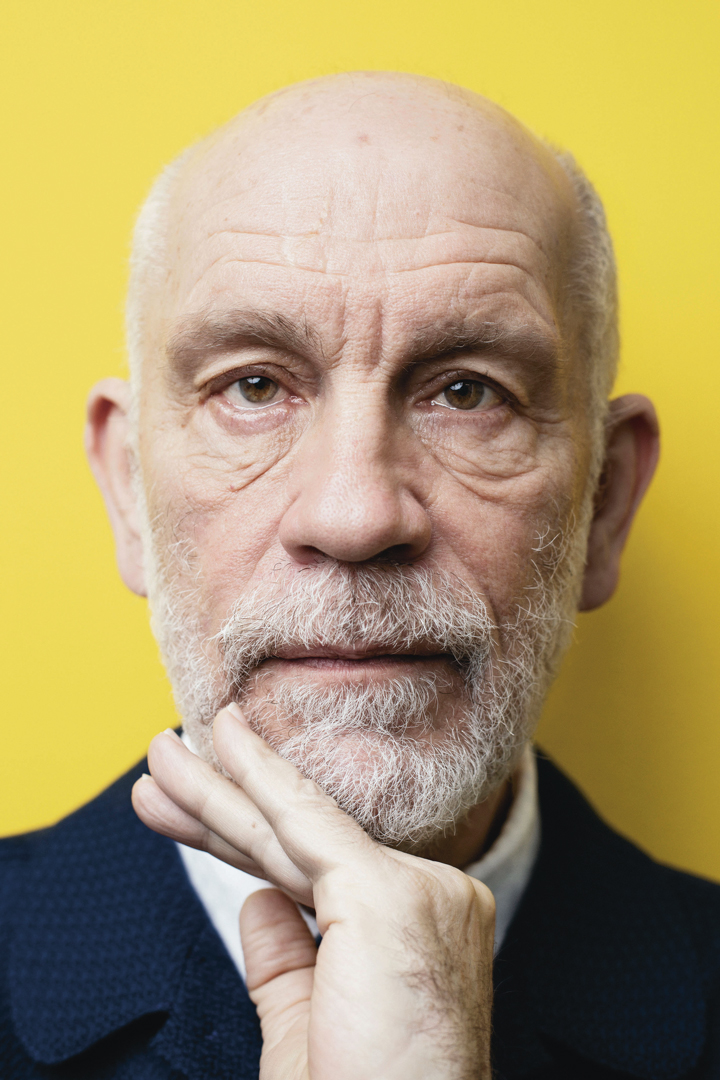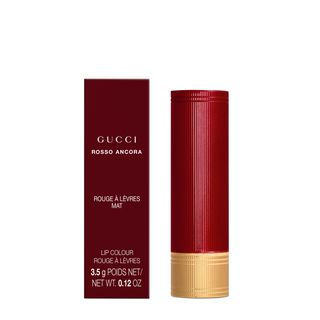
John Malkovich on why beauty is mandatory for the survival of the species
Is it a fabric that has personality or does it emphasise or magnify an aspect of the wearer’s personality?
“It does that as well. I stopped doing fashion about six, seven years ago, but the great fabric designers, of which there are still some, I always so look forward to getting to see their collections. Marvelling at how beautiful the fabric itself is and dreaming of everything one could do with it.”
The New Look grandly declares from the outset that Christian Dior became an “icon of hope” after the war and inspired a revolution. Does Malkovich believe creative industries can really inspire revolution?
“I couldn’t answer because it depends on what sort of revolution.”
It need not be a massive global political revolution. A social revolution or personal revolution can be just as significant, right? “Personal revolution is pretty important. And social revolution can be important. It can also be stupid. Is it the French Revolution, the Marxist revolution? Is it a frivolution? Many things, even those appearing to be deeply ideological or moral, in fact, are actually fashion revolutions.”
Your support changes lives. Find out how you can help us help more people by signing up for a subscription
This is the revolution The New Look concerns itself with. While focusing on the fashion industry may seem fatuous given the horrors of the time, there is undeniable, uncomfortable power in the juxtaposition between the atrocities causally conducted by Nazi occupiers and the undimming determination of others to restore beauty to the world.
This is the thread that runs through the series but also ties it to these times. While the Nazis were trying to turn Berlin into the centre of the world, Lelong, via no doubt very dangerous liaisons with the Nazis, convinced them not to transfer the couture industry and its 12,000 employees to the German capital, a move that saved Paris’s status as fashion centre of the world.
But there are costs to be paid living under oppressive authorities. The viewer asks themselves what you would do in the same situation. What compromises would you make to ensure you don’t rock the boat you and your family and friends are sailing, knowing the waters are perilous. Today, with a rise of extreme politics and injustices at home and abroad, to what extent are we complicitly going along with the direction of travel? This is the reason Malkovich thinks The New Look has an important story to tell.
“Now is a time, that we’re hopefully coming out of, of great moral certainty and indignation, none of which were backed up either by science or by moral goodness. And not by honesty and not by particularly any kind of intelligence. So that’s one thing that I think makes it topical, let’s say temporal. We’re in the age of the unforgiving, which assumes bad faith on the part of every player. The world is morally complex. People are often faced with difficult choices they would rather not make. Those complexities are ignored in history and ignored in the kind of Roman thumbs-up thumbs-down present day.”
You said “hopefully” we’re coming out of this time. Where do you see hope?
“I used the word hope. But it is not a hope filled with hope. It’s not a hope filled with belief. It’s just a vague hope. Do I think it will change? No, I do not.
“Right now, my sense of the world is that we have tribes of people. They can be racial tribes, religious tribes, ideological tribes. Then there can be identarian tribes mixed in. That makes it hard for people of good faith, of which there are some; I don’t know how many of them are in politics. And I’m not being cynical. I’m just not sure about that. Because power comes from the ability to carve divisions in a populace.”
Fortunately for many of the fashion designers of 1940s Paris, the Nazis loved throwing parties and their wives craved a steady supply of new dresses. Elegant balls take place in the same grand buildings where political prisoners are being tortured. The duality between beauty and cruelty is unsettling to see.
“Beauty to me is necessary. It’s mandatory for the survival of the species. It ennobles and can help everything around it endure, help people endure. But cruelty is always with us. Barbarism lives in us, hatred lives in us.
“Of course,” John Malkovich says, “Ernesto Sabato, the great Argentinian writer who by trade was an astrophysicist, in his book, On Heroes And Tombs, said that they were the most cultivated culture in human history up to that point. And look at the barbarism, the mayhem, the destruction.
“There’s an idea that Nazis are these blond, blue-eyed people who are very bad. And sure, of course. But for me, it’s important to keep in mind that that exists in every one of us. Bless you if you don’t have it. I think most of us do. And that’s what we should concentrate on. Rather than just concentrating on the other constantly, look to our own.”
How do you keep your own demons at bay?
“Just by trying to be diligent.”
The New Look is available to watch now on Apple TV+
This article is taken from The Big Issue magazine, which exists to give homeless, long-term unemployed and marginalised people the opportunity to earn an income. To support our work buy a copy!
If you cannot reach your local vendor, you can still click HERE to subscribe to The Big Issue or give a gift subscription. You can also purchase one-off issues from The Big Issue Shop or The Big Issue app, available now from the App Store or Google Play
